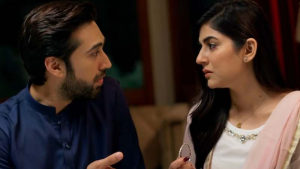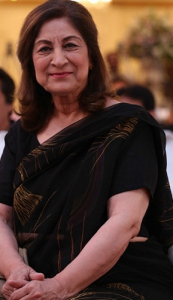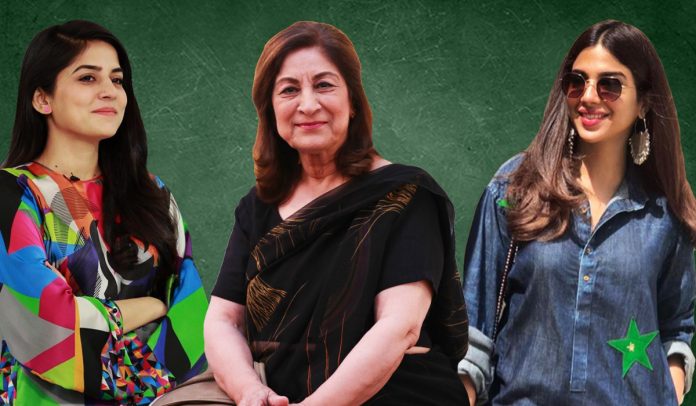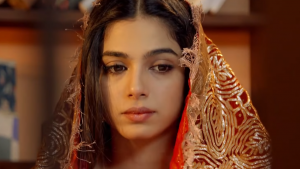The writer of Mere Paas Tum Ho, Khalil ur Rehman Qamar, stirred much controversy recently when his interview, which was widely interpreted to be misogynistic, started doing rounds over the internet. Following that interview, the now famous ‘do takay ki aurat’ dialogue from the television serial’s latest episode came under the spotlight, some many felt that it showed a certain bias against Mehwish, the leading lady of Mere Paas Tum Ho, when Adnan Siddiqui’s Shehwar is equally to blame as well.
The whole controversy forced people to think about the way female characters are written in our dramas. While it is true that presently Pakistani dramas still have some ground to cover in showing strong female protagonists, there are some shows that are breaking the mold by introducing female characters who have a lot more to offer than reinforcing the age-old stereotypes.
Sanam Baloch in Khaas
Khaas on its face value appeared to have a rather typical plot — A good-looking man falls in love with a pretty girl and they get married. Both of them belong to roughly the same social class and are equally educated. But after their marriage, things do not turn out well and their relationship starts to crack, due to the husband’s relentless psychological abuse of his wife. Eventually, the drama brings out in the open what many in the audience saw quite plainly – that Ammar, the husband played quite effectively by Ali Rehman Khan, is an arrogant narcissist.
 He makes fun of his wife Saba, played by Sanam Baloch, humiliates her in front of his family members and expects Saba to be okay with it. What made Khaas different was how the play treated Saba. Instead of being the forever suffering heroine of the drama, she demands better treatment from her husband. And instead of the prolonged damsel-in-distress routine, we actually get to see her get out of the toxic relationship which only proved to be a source of psychological abuse for her. She eventually chooses a different partner and turns around her life.
He makes fun of his wife Saba, played by Sanam Baloch, humiliates her in front of his family members and expects Saba to be okay with it. What made Khaas different was how the play treated Saba. Instead of being the forever suffering heroine of the drama, she demands better treatment from her husband. And instead of the prolonged damsel-in-distress routine, we actually get to see her get out of the toxic relationship which only proved to be a source of psychological abuse for her. She eventually chooses a different partner and turns around her life.
Sonya Hussain in Ishq Zahe Naseeb
Ishq Zahe Naseeb is another drama that excites viewers every week with an unconventional storyline. There are a lot of unconventional characters in this drama and each one of them has something new to offer. Gohar, played by Sonya Hussain, happens to be one of them. Gohar and Kashif (Sami Khan) are madly in love together and want to get married. However, fate has different things in store for them and eventually they decide not to tie the knot.
Instead of crying all her life about not getting married to Kashif, Gohar moves on and starts working at a firm where she meets Sameer (Zahid Ahmed). This isn’t something we see in our dramas every day. Moreover, after getting forcefully engaged to her cousin Jahangir- who happens to be a low-life – she breaks the engagement once she finds out that he keeps track of wherever she goes and acts as if he owns her.
Azra Mansoor Hussain in Jo Tu Chahay
Our dramas hardly focus on writing better characters for women, let alone writing substantial characters for women over 50. That is why the character Aapa Ji, enacted by Azra Mansoor Hussain, from Jo Tu Chahay happens to be a breath of fresh air. First of all, she is shown as the matriarch of the family even though she has two sons. Secondly, what’s so refreshing about the character is the fact that she not only encourages her granddaughter Mashal (Alizeh Shah) to be more hopeful about her future, invoking the Almighty but also stands by her whenever she’s wronged.
 For instance, in the latest episode, Mashal’s cousin Burhan (Raeed Mohammad) misbehaves with her and tries to inappropriately touch her. Once Aapa Ji finds out about this, instead of telling Mashal to keep quiet for the sake of the family’s name just as any typical Daadi of our dramas would do, she goes on to not only berate Burhan in front of his mother and father, but also slaps him. Azra Mansoor is quite a phenomenal force of nature as Aapa Ji and she manages to convey each and every emotion of the character perfectly.
For instance, in the latest episode, Mashal’s cousin Burhan (Raeed Mohammad) misbehaves with her and tries to inappropriately touch her. Once Aapa Ji finds out about this, instead of telling Mashal to keep quiet for the sake of the family’s name just as any typical Daadi of our dramas would do, she goes on to not only berate Burhan in front of his mother and father, but also slaps him. Azra Mansoor is quite a phenomenal force of nature as Aapa Ji and she manages to convey each and every emotion of the character perfectly.
These characters show that contemporary scriptwriters can pen female roles of substance just as well. These are just a few of the roles that show women in a positive light and in control of their own choices, and we look forward to seeing many more strong central female characters in future productions.





